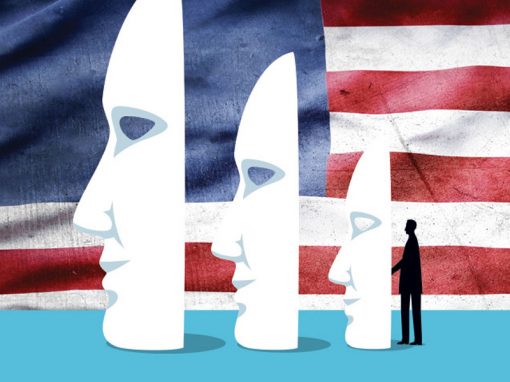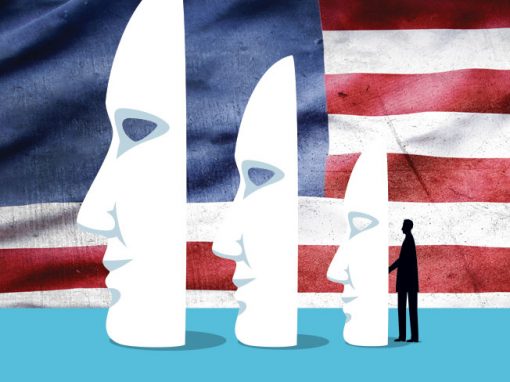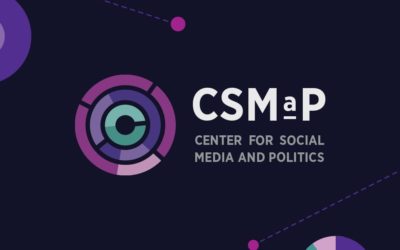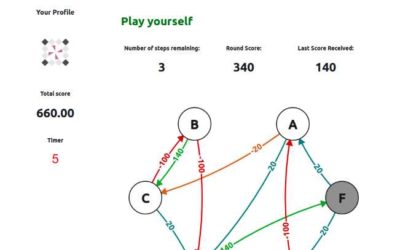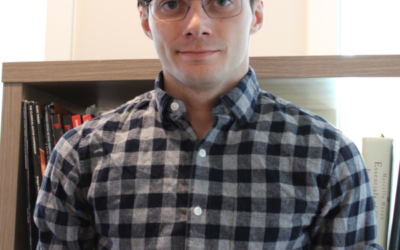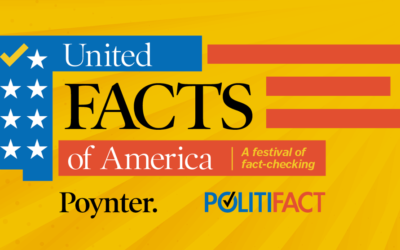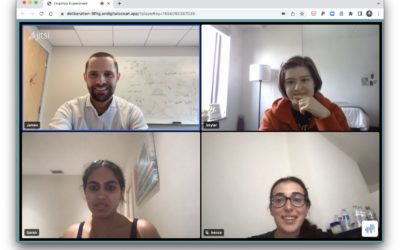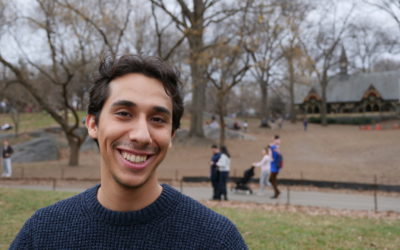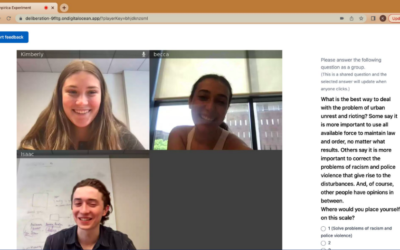Project Ratio
“Fake news,” broadly defined as false or misleading information masquerading as legitimate news, is frequently asserted to be pervasive online with serious consequences for democracy. The rise of fake news highlights the erosion of long-standing institutional bulwarks against misinformation in the internet age. Particularly, since the 2016 US presidential election, the deliberate spread of misinformation on social media has generated extraordinary concern, in large part because of its potential effects on public opinion, political polarization, and ultimately democratic decision making. Inspired by “solution-oriented research”, the project Ratio aims to foster a news ecosystem and culture that values and promotes authenticity and truth.
However, proper understanding of misinformation and its effects requires a much broader view of the problem, encompassing biased and misleading–but not necessarily factually incorrect–information that is routinely produced or amplified by mainstream news organizations. Much remains unknown regarding the vulnerabilities of individuals, institutions, and society to manipulations by malicious actors. Project Ratio measures the origins, nature, and prevalence of misinformation, broadly construed, as well as its impact on democracy. We strive for objective and credible information, providing a first-of-its-kind at scale, real-time, cross-platform mapping of news content, as it moves through the “information funnel,” from news production, through distribution and discovery, consumption, and absorption.
%
Before the 2016 Election
%
After the 2016 election
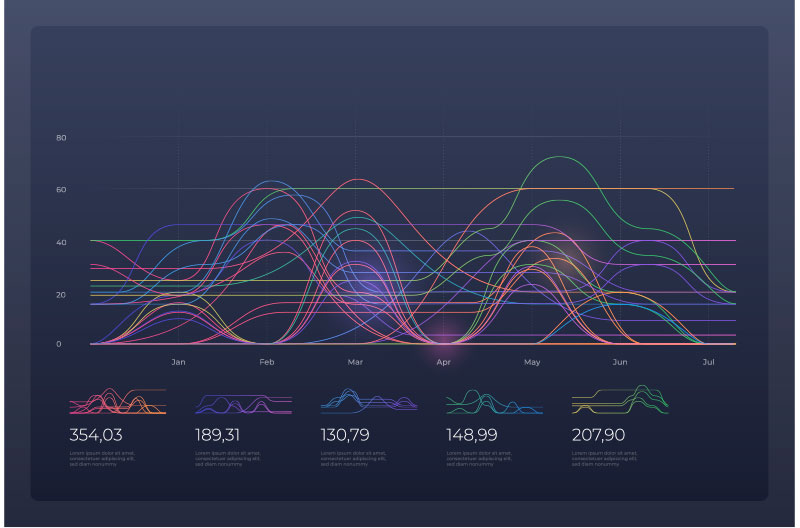
Lorem ipsum dolor sit amet, consectetur adipiscing elit. Aliquam tincidunt nunc ut hendrerit volutpat. Duis auctor scelerisque neque, eget condimentum enim semper vitae.
KEY RESEARCHERS
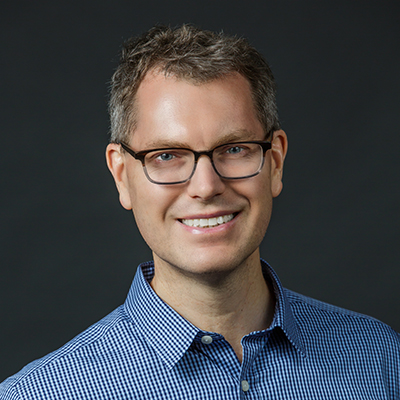
Duncan Watts
Stevens University Professor & twenty-third Penn Integrates Knowledge Professor

David Rothschild
Research Scientist @ Microsoft

Homa Hosseinmardi
Research Scientist
![]() PUBLICATIONS
PUBLICATIONS
Rebuilding legitimacy in a post-truth age
Duncan J. Watts and David Rothschild.
The current state of public and political discourse is in disarray. Outright fake news stories circulate on social media. The result has been a called a post-truth age, in which evidence, scientific understanding, or even just logical consistency have become increasingly irrelevant to political argumentation.

Don’t blame the election on fake news. Blame it on the media.
Duncan J. Watts and David Rothschild.
Since the 2016 presidential election, an increasingly familiar narrative has emerged concerning the unexpected victory of Donald Trump. Fake news, was amplified on social networks. We believe that the volume of reporting around fake news, and the role of tech companies in disseminating those falsehoods, is both disproportionate to its likely influence in the outcome of the election and diverts attention from the culpability of the mainstream media itself.
The science of fake news
David M. J. Lazer, Matthew A. Baum, Yochai Benkler, Adam J. Berinsky, Kelly M. Greenhill, Filippo Menczer, Miriam J. Metzger, Brendan Nyhan, Gordon Pennycook, David Rothschild, Michael Schudson, Steven A. Sloman, Cass R. Sunstein, Emily A. Thorson, Duncan J. Watts and Jonathan L. Zittrain.
The rise of fake news highlights the erosion of long-standing institutional bulwarks against misinformation in the internet age. We discuss extant social and computer science research regarding belief in fake news and the mechanisms by which it spreads.
![]() DATA
DATA
DATA OVERVIEW
The burgeoning and rise of big data results in salience of the quantity of data, nourishing the soil for qualitative research and analysis, addressing social, economic, cultural and ethical implications and issues of social science. Converging computer science and social science, the project Ratio suggests use-inspired intellectual research style and data-driven methodological directions for computational social science, yielding a diversity of perspectives on explanation, understanding, and prediction of information flow and impact. Collaborating with various data providers, currently including Nielsen, PeakMetric, TVEyes and Harmony Labs, we seek to establish a large-scale data infrastructure for studying the production, distribution, consumption, absorption in the information ecosystem, illuminating each aspect of research on “fake news” in-depth and in-width.
Homa Hosseinmardi moderates panel on media consumption, misinformation, and polarization
CSSLab Associate Research Scientist Homa Hosseinmardi will moderate a panel on media consumption, misinformation, and polarization as part of NYU’s Center for Social Media and Politics Seminar Series.
Empirica Stories: Exploring cultural evolution in the virtual lab
Today, we highlight the work of Levin Brinkmann and collaborators on their paper “Hybrid social learning in human-algorithm cultural transmission,” recently published in Philosophical Transactions of the Royal Society A.
Researcher Spotlight: Coen Needell
As of August 2022, the CSSLab is excited to welcome Coen Needell to the team as a pre-doctoral researcher. In this Researcher Spotlight, he shares about his pathway through the field of CSS, his role in the Penn Media Accountability Project (PennMAP), and how he’s poised to contribute in the year ahead.
PennMAP work on TV news featured at PolitiFact’s United Facts of America conference
CSSLab affiliated researcher David Rothschild discusses PennMAP research on TV echo chambers, news consumption, and cable news confusion at PolitiFact’s United Facts of America conference.
PennMAP research featured on Australian radio
New PennMAP research on TV echo chambers was discussed by Australian media experts on Fourth Estate, broadcast live on Sydney radio.
Demystifying deliberation, while reinventing social science research on the side
Depending on the group, the discussion topic, or the context of a negotiation, interventions meant to streamline a deliberation process can have varying degrees of success. This summer, student researchers at Penn’s Computational Social Science Lab set out to demystify the intervention process.
Behind the Scenes: The team driving Nudge Cartography
The Nudge Cartography project is building a tool to help policymakers, marketers, managers, and academics intelligently motivate behavior change. Meet some of the project leads and volunteers putting it all together.
Miguel Rivera-Lanas joins team as resident Data Scientist
August brings a special welcome to Miguel Rivera-Lanas, who is postponing his graduate studies to continue his work at the CSSLab as its resident Data Scientist.
Recap: CSSLab’s Summer 2022 Student Research Conference
On July 29th, the CSSLab held its inaugural Student Research Conference to share the summer progress made in the Lab’s various projects.
From the Executive Corner: Welcoming Jeanne Ruane
CSSLab Director Duncan Watts says farewell to former Executive Director Valery Yakubovich and welcomes his replacement, Jeanne Ruane.
